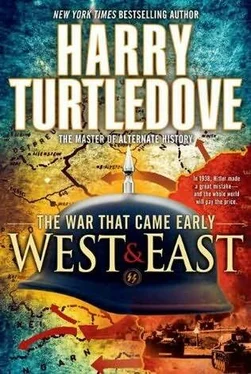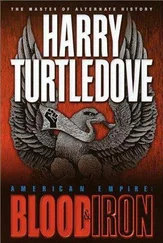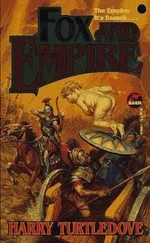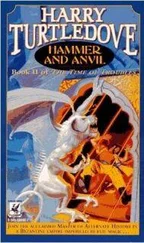Harry Turtledove - West and East
Здесь есть возможность читать онлайн «Harry Turtledove - West and East» весь текст электронной книги совершенно бесплатно (целиком полную версию без сокращений). В некоторых случаях можно слушать аудио, скачать через торрент в формате fb2 и присутствует краткое содержание. Жанр: Альтернативная история, на английском языке. Описание произведения, (предисловие) а так же отзывы посетителей доступны на портале библиотеки ЛибКат.
- Название:West and East
- Автор:
- Жанр:
- Год:неизвестен
- ISBN:нет данных
- Рейтинг книги:5 / 5. Голосов: 1
-
Избранное:Добавить в избранное
- Отзывы:
-
Ваша оценка:
- 100
- 1
- 2
- 3
- 4
- 5
West and East: краткое содержание, описание и аннотация
Предлагаем к чтению аннотацию, описание, краткое содержание или предисловие (зависит от того, что написал сам автор книги «West and East»). Если вы не нашли необходимую информацию о книге — напишите в комментариях, мы постараемся отыскать её.
West and East — читать онлайн бесплатно полную книгу (весь текст) целиком
Ниже представлен текст книги, разбитый по страницам. Система сохранения места последней прочитанной страницы, позволяет с удобством читать онлайн бесплатно книгу «West and East», без необходимости каждый раз заново искать на чём Вы остановились. Поставьте закладку, и сможете в любой момент перейти на страницу, на которой закончили чтение.
Интервал:
Закладка:
A young man in a Wehrmacht uniform, his left arm in a sling, smiled at her as she walked past. She didn’t smile back. She thought she might have if she were an Aryan; he was nice-looking. Up till Hitler took over, she’d always thought of herself as more German than Jewish. Even with everything that was going on, her father and brother had tried to join up when the war started. They still wanted to be Germans. The recruiters wouldn’t let them. It was all so monstrously unfair.
The Jewish grocer’s shop and bakery sat across the street from each other. Before the war started, brownshirts had amused themselves by swearing at Jewish women who went in and out. They’d chucked a rock through the grocer’s window, too. Naturally, the police only yawned. Now most of the brownshirts were carrying rifles. Sarah hoped the French and the English-yes, and the Russians, too-would shoot them.
She got some sad potatoes and turnips, some wilting greens, and a couple of wizened apples at the grocer’s. It all cost too much and too many ration points. When she grumbled, Josef Stein only shrugged. “It’s not like I can do anything about it,” the proprietor said.
“I know.” Sarah sighed. “But it’s not easy for my family, either.”
“You want easy, what are you doing here?” Stein said.
She walked across the street to the bakery. The bread was what the ration book called war bread. It was baked from rye and barley and potato flour. It was black and chewy. The alarming thing was that people who remembered the last war said it was better than what they ate then. That bread had been eked out with ground corn and lupine seeds-and, some people insisted, with sawdust, too.
The baker’s son stood behind the counter. Isidor Bruck was only a couple of years older than Sarah. He’d played football with her brother, though he wasn’t in Saul’s class (but then, who was?). No doubt his parents had named him Isidor to keep from calling him Isaak. That kind of thing amused Sarah’s father, who’d told her Isidor meant gift of Isis -not the sort of name a Jew ought to wear. She didn’t think the Brucks had given it to him because of what it meant, but even so…
“This is a pretty good batch,” he said as he put the loaf in her cloth sack.
“You always say that,” Sarah answered. “Or your father does, if he’s back there instead.”
“We always mean it, too. We do the best we can with what they let us have,” Isidor said. “If they gave us more, we’d do better. You know what we were like before… before everything happened. We were the best bakery in town. Jews? Goyim? We were better than everybody.”
“Sure, Isidor,” Sarah said. As far as she could remember, he was right. Whenever the Goldmans wanted something special, they’d come to the Brucks’ bakery. She remembered things as ordinary as white bread with a fond longing she wouldn’t have imagined possible only a couple of years before.
She gave him money and more ration coupons. Just handling the coupons, printed with the Nazis’ eagle holding a swastika in its claws, made her want to wash her hands. But she had to use them-she or her mother. If they didn’t, the family wouldn’t eat. It wouldn’t eat well any which way. Aryans couldn’t eat well under rationing, though they could keep body and soul together. Jews had trouble doing even that.
He handed her her change. Some of the bronze and aluminum coins also bore the eagle and swastika. She liked the older ones, from the Weimar Republic, better. They didn’t make her wish she could be a traitor against the government, or at least that the country -her country, in spite of everything-had gone in a different direction.
“Take care,” Isidor said as she turned to go. “Hope I see you again before too long.”
“Sure,” Sarah said, and then wondered if she should have. She could see his reflection in the front window as she walked to the door-neither brownshirts nor British bombs had broken this one. Yes, he was watching her. She had to ask herself how she felt about being watched. What would she do if he asked her to go walking in the botanical gardens, or through the park just south of them that held the zoo? (Those were the most exciting dates Jews could have these days. Even movie theaters were off-limits. Sarah didn’t look especially Jewish, but Isidor did. The ticket seller would surely ask for his ID, and trouble would follow right away.)
A baker’s son? In ordinary times, she would have laughed at the idea. These days, weren’t all Jews equal in misery? And-a coldly pragmatic part of her mind whispered-if anybody kept food on the table, wouldn’t a baker? The things you had to think about! She was glad when the door swung shut behind her.
Chapter 3
Up atop the U-30’s conning tower, Lieutenant Josef Lemp imagined he could see forever. No land was in sight. Ireland lay off to the north, Cornwall to the east, but neither showed above the horizon. Gray-blue sky came down to meet green-blue sea in a perfect circle all around the boat. The eye couldn’t judge how wide that circle was. Why not believe it stretched to infinity and beyond?
Why not? Only one reason: you’d get killed in a hurry if you did. Three petty officers on the conning tower with Lemp constantly scanned air and sea with Zeiss binoculars. The U-30 had almost circumnavigated the British Isles to reach this position. As far as the Royal Navy and the RAF were concerned, she made an unwelcome interloper. They had ways of letting her know it, too.
But the U-boat needed to be here. Convoys from the USA and Canada and Argentina came through these waters. Without the supplies they carried, England and her war effort would starve. And British troopships ferried Tommies and RAF pilots and the planes they flew to France. Sink them before they got there, and they wouldn’t give Landsers and Luftwaffe flyers grief.
One of the petty officers’ field glasses jerked. He’d spotted something up in the sky. Lemp got ready to bawl the order that would send everybody on the tower diving down the hatch and the U-30 diving deep into the sea. Then the binoculars steadied. The petty officer let out a sheepish chuckle. “Only a petrel,” he said.
“That’s all right, Rolf,” Lemp said. “Better to jump at a bird than to miss an airplane.”
Rolf nodded. “You bet, Skipper.”
The surface navy was all spit and polish and formality. There was no room for that kind of crap aboard U-boats. The men who sailed in them laughed at it. They were a raffish lot, given to beards and dirty uniforms and speaking their minds. But when the time came to buckle down to business, nobody was more dangerous.
Lemp had his own binoculars on a strap around his neck. The conning tower also carried a massive pair on a metal pylon, for times when a skipper needed to trade field of view for magnification.
Rolf stiffened again, this time like a dog coming to the point. “Smoke!”
“Where away?” Lemp asked, grabbing for his field glasses.
“Bearing about 270,” the petty officer answered. “You can make it out just above the horizon.”
Back and forth, back and forth. Moving the binoculars that way was second nature for Lemp. And sure as hell, there was the smudge. “Well, let’s see what we’ve got,” he said, excitement tingling through him. “Go below, boys,” Down the hatch they went, shoes clanging on iron rungs. Lemp, the last man there, dogged the hatch. “Take us to Schnorkel depth,” he ordered as he descended.
The U-30 slid below the surface-but not far below. The tube mounted atop the submarine let the diesels keep breathing even so. Lemp was not enamored of the gadget, which didn’t always work as advertised. The shipfitters back in Kiel wouldn’t have installed the Dutch-invented device on his boat if he’d been in good odor with the powers that be. After sinking an American liner while believing it to be a big freighter, he wasn’t. He was lucky they hadn’t beached him-maybe lucky they hadn’t shot him. No one who remembered the last war wanted to see the USA jump into this one.
Читать дальшеИнтервал:
Закладка:
Похожие книги на «West and East»
Представляем Вашему вниманию похожие книги на «West and East» списком для выбора. Мы отобрали схожую по названию и смыслу литературу в надежде предоставить читателям больше вариантов отыскать новые, интересные, ещё непрочитанные произведения.
Обсуждение, отзывы о книге «West and East» и просто собственные мнения читателей. Оставьте ваши комментарии, напишите, что Вы думаете о произведении, его смысле или главных героях. Укажите что конкретно понравилось, а что нет, и почему Вы так считаете.











